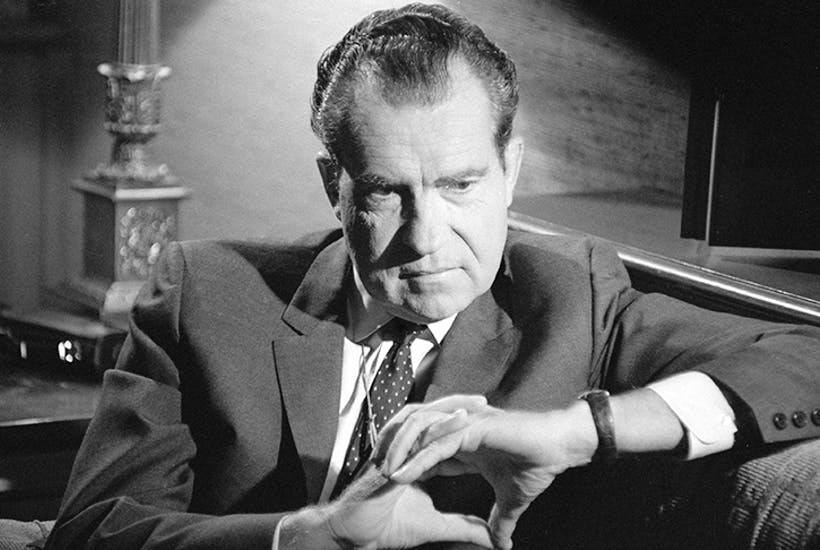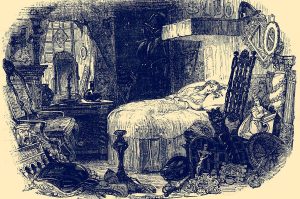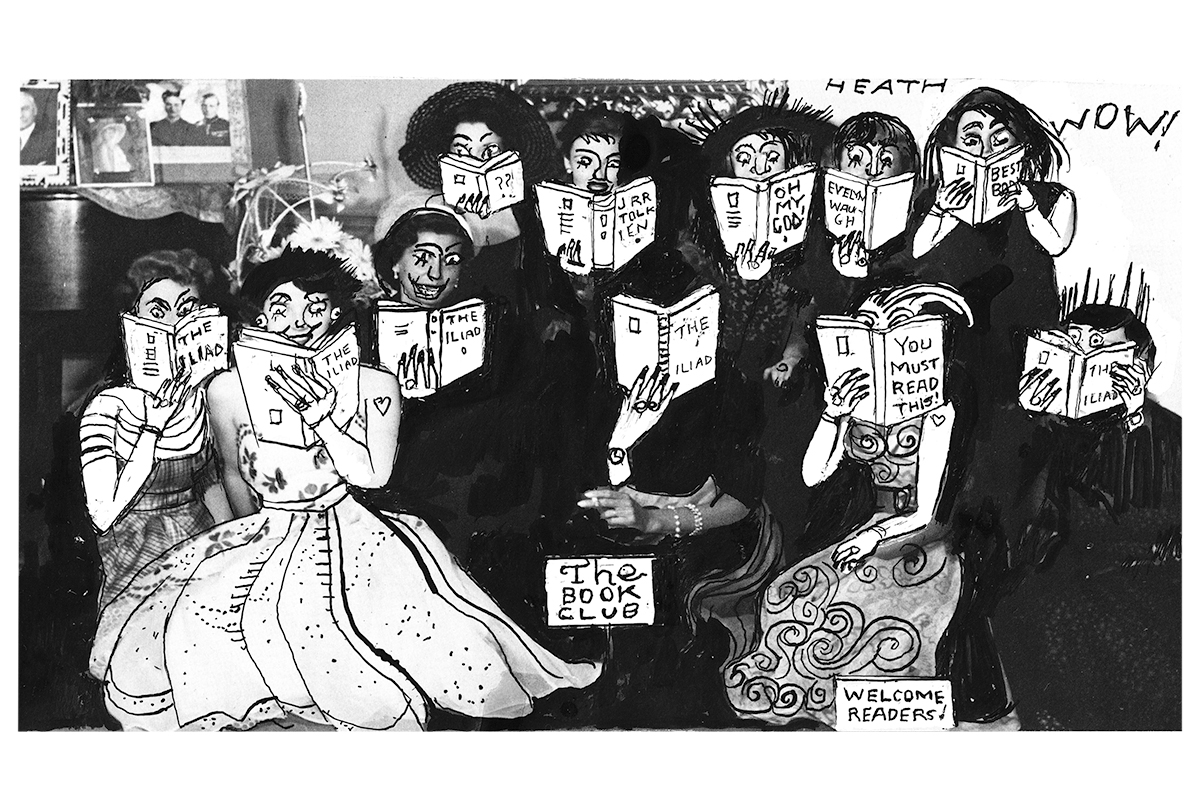In this giant, prodigiously sourced and insightful biography, John A. Farrell shows how Richard Milhous Nixon was the nightmare of the age for many Americans, even as he won years of near-adulation from many others. One can only think of Donald Trump. Nixon appealed to lower- and lower-middle-class whites from the heartland, whose hatred of the press and the east-coast elite, and feelings of having been short-changed and despised by snobs, held steady until their hero and champion unmistakably broke the law and had to resign his second-term presidency.
Nixon won a smashing re-election in 1972, even as it was apparent that the White House was awash with skulduggery. His closest aides were caught, arrested and charged with breaking into the Watergate complex, where there were Democrat offices — though Farrell contends that Nixon gave no express orders for these and similar acts.
Other cronies hoped to discover embarrassing documents in the files of the psychiatrist treating Daniel Ellsberg, who had leaked the revealing Pentagon Papers, and preserved the infamous Oval Office tapes in which Nixon confided his darkest thoughts against his enemies. The president nearly got away with all of it. Farrell quotes Nixon as longing to be feared as a madman. The only two men he truckled to were Dwight Eisenhower, who used Nixon for his dirtier tricks, and Mao, to whom Nixon promised he would betray Taiwan.
Even when he was totally exposed as a villain, liar and schemer, he was able to resign from the White House and was pardoned by his vice-president rather than having to undergo the ordeal of impeachment and ignominious removal from office. And he lived on, wealthy, often admired, and conceding only gradually, in an evasive, self-justifying way, that some of the things he had done were unwise, careless, wrong and even possibly illegal.
Nonetheless, Farrell shows, the China breakthrough — until Nixon’s trip to see Mao in 1972, for the US Taiwan was China — and his promotion of school desegregation, were significant achievements. Without venturing too deeply into psychoanalysis, Farrell, a journalist who specialises in big biographies, argues convincingly that Nixon’s early years as a middle child with a violent father and an undemonstrative Quaker mother resulted in life-long self-doubt, vengefulness and the pursuit of power. He was always leery of the true love of his wife and daughters.
He grew up in a small California town, attended the local college, went on to an almost first-rate law school, and then began his political climb towards the power he craved; but that was never enough because, of course, he really needed the love and affection he felt he had been cheated of as a child. This resulted in endless secret hatreds.
Although Martin Luther King admired Nixon for his public attitude towards ‘negroes’, the president confided to a friend: ‘Most of them are basically just out of the trees… I know they ain’t going to make it for 500 years.’ And although two of his closest allies were Jewish, most obviously Henry Kissinger, Nixon’s private attitude was: ‘Most Jews are disloyal…They turn on you.’ Then there was his screaming hatred for the Vietnamese: ‘I’ll destroy the goddam country. I mean destroy it. We will bomb the living bejeezus out of North Vietnam… I’ve got everybody scared. Go berserk. Worry them.’
It was the Cold War and the Red Scare that gave him his big push originally, and the attitude and tools for attacking others. He defeated a sitting congressman by falsely suggesting he had communist sympathies. Once in the Oval Office, he pursued the ultimate elite prey in the form of Alger Hiss, an actual communist spy — as lefties like myself could not admit for years. Now Ike’s vice-president, he could get close to, but not intimate with, senator Joseph McCarthy, whose anticommunist campaign ruined, or at least blackened, many lives. The senator’s ultimate disgrace did Nixon no harm, although, along with his glimmerings of financial jiggery-pokery and rough politics, it caused Eisenhower, who disliked mud and blood, almost to dump Nixon as his vice-president.
What saved Nixon — and how well I remember this — was his ability to invoke in speeches his humble origins, his wife’s simple cloth coat, and above all Checkers, the family dog he magically transformed into a public pet. His fans loved it.
They never knew how dark, scheming and hate-filled Nixon was, keeping in touch with his family with notes under their doors; sleeping separately from his wife (who longed for domestic life but increasingly longed, too, to become first lady); drinking too much; and spending time off with two vaguely disreputable ‘friends’ on their yachts in the Caribbean. Nor did they know about his madman language — in which he was encouraged by his closest staff, and most of all by Kissinger, the close associate who has somehow escaped obloquy.
It is astounding that Nixon got away with his many vile acts and actual crimes. But as Farrell points out near the end of his important and revealing biography, Nixon presaged a time, that would last for years, of CIA eavesdropping; and of the ‘Watch Lists’ with which the CIA, the FBI, the Internal Revenue Service and the National Security Agency scrutinised, disrupted and smeared public figures. These included Martin Luther King, Norman Mailer, John Steinbeck, Sammy Davis Jr and Hubert Humphrey. The CIA developed assassination plots. They targeted Castro and Patrice Lumumba, who were not killed; but in Saigon, President Ngo Dinh Diem was. All this, as Farrell acutely observes, ‘puts Watergate in a different context… part of a continuum, no sole breach of faith’.

























